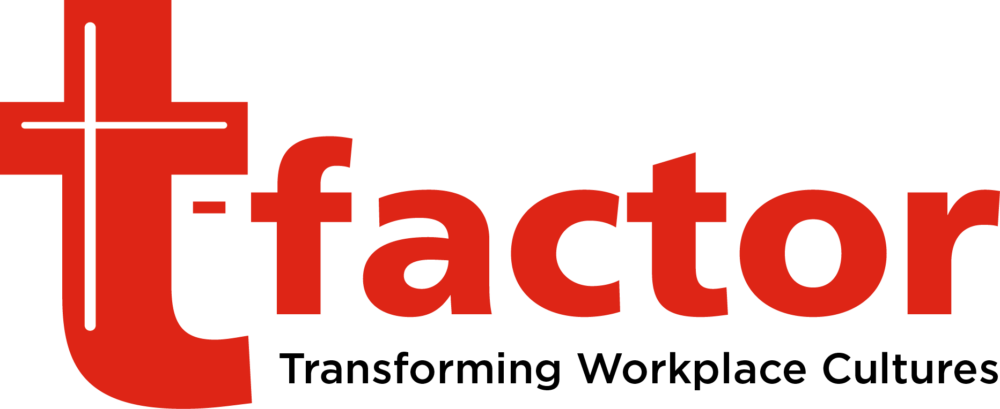Frequently Asked Questions
Q: Can an organization apply some of t-factor if only having a few hundred employees?
A: Yes. One can apply all that was discussed at t-factor with small, medium-sized or large organizations.
Q: Can implementing t-factor impact an organization’s ROI?
A: There are several ways to quantify the impact of changing your culture . . . reduced turnover, retention, etc. As an example, company testimonials have shared that Corporate Chaplains have helped reduce employee turnover and increased employee engagement.
Q: What percent of organizations, that have attended t-factor, have implemented at least one deliverable of t-factor?
A: We have learned through follow-up that within 90 days after attending t-factor at least 68% of organizations implemented at least one t-factor deliverable.
Q: What t-factor deliverable would you suggest an organization implement first?
A: We suggest implementing first prayer groups – prayer groups are easy to implement – your employees who have a desire to lead these groups can take the initiative to implement these fairly easily within your organization. Secondly, we would suggest developing or expanding upon your organization’s Purpose statement. Thirdly, we would suggest implementing Chaplaincy into your workplace.
Q: How much does it cost to implement t-factor in an organization?
A: Depends upon several factors. It can be minimal, almost zero cost, to get started (i.e. changing your Purpose statement to include God).
Q: How long does it take to implement and achieve a culture like the one at Coca-Cola Consolidated?
A: It certainly depends on where you are starting from. Culture change can sometimes take 5-7 years, but with the right leadership and commitment it could take 5-7 months to begin seeing results.
Q: Are there additional resources that can assist organizations as they attempt to implement various aspects of the t-factor transformation process?
A: t-factor has many resource partners to assist with implementation of your transformation journey. All of the t-factor resource partners are listed on the t-factor website at t-factor.com.
Q: What policies and procedures would Coca-Cola Consolidated consider “must haves” as organizations continue to develop a faith-friendly culture?
A: A Religious Accommodation Policy
A Harassment Policy & Request Form
(Note: A link to both of these example policies are located in the “Related Materials” in the Legal
video segment)
Q: What are the t-factor “deliverables” to be implemented in order to become an “ideal” organization that has been effectively transformed? What are the key performance indicators to track and measure these deliverables?
A: We suggest starting with your Purpose Statement, followed by survey tools to measure the impact.
Q: What is the difference between a “Mission” Statement and a “Purpose” statement?
A: A mission statement is a written pronouncement of an organization’s precise focus that may shift with the passage of time with changes in the market and environment. On the other hand, a purpose statement presents the fundamental reason that drives an organization and motivates it to achieve its business goals.
Coca-Cola Consolidated has learned over time that Purpose is more motivational, more inspirational, and more eternal. It is the “Why” we are here. “Mission” is what we do every day.
Q: How can we diagnose our organization in order to have a starting point (ground zero), where we know what to implement about t-factor? How do we evaluate these results as we implement t-factor deliverables?
A: Some companies evaluate their core competencies to understand where they might give, they may look at the make-up of their employee population to understand which programs they may implement. Many organizations measure the impact using some type of annual employee engagement survey.
Q: How are the following key performance indicators to be measured?
A:
Indicator #1: Improvement of Organizational Culture
A: Employee Survey
Indicator #2: Other Improvements that Reduce Costs and Expenses
A: Attrition report data such as turnover data
Indicator #3: Perceived Improvements in Teammate Professional and Personal Relationships Post t-factor Implementation
A: Employee Survey
Q: How is Coca-Cola Consolidated investing in t-factor to connect with CEOs around the world?
A: We believe that culture is the most important thing about a business.
We believe this has a direct impact on teammates and your business.
We hope to be a part of the revival in the workplace.
